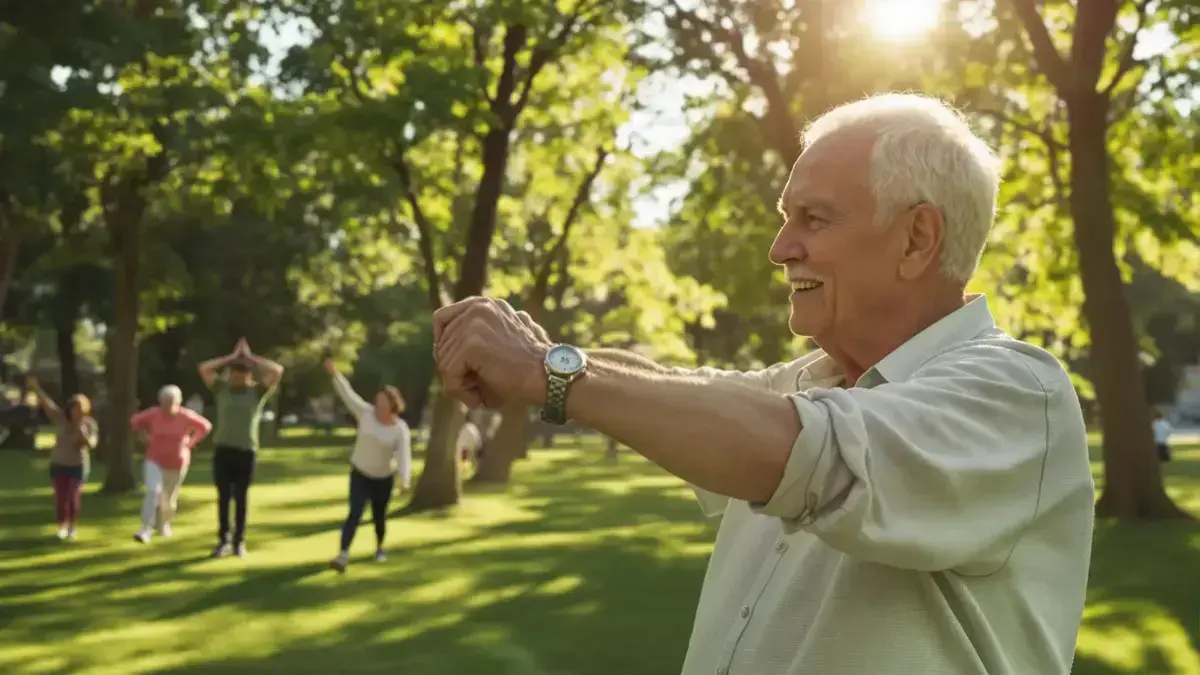A recent study from Johns Hopkins University reveals that a simple practice of moderate physical activity for 35 minutes per week can reduce the risk of dementia by 41%. This link between physical activity and dementia prevention is even applicable to older adults, highlighting that every minute counts. The results show that increased weekly activity levels can significantly lower the chance of developing cognitive impairments, making exercise essential for brain health.
Key Information
- 41% reduction in the risk of dementia with just 35 minutes of moderate physical activity per week.
- Johns Hopkins University’s discovery of the link between physical activity and dementia risk.
- Older adults can lower their risks with a simple increase in activity each week.
- Remarkable protective effects even with just a few minutes of exercise per week.
Spectacular Reduction in Dementia Risk
It has been established that a simple routine of moderate physical activity for 35 minutes per week can lead to an impressive 41% reduction in the risk of dementia. This finding, revealed by Johns Hopkins University, highlights a significant link between physical activity and cognitive health, offering tangible hope for those looking to maintain their mental well-being as they age.
Impact on Older Adults
It is important to emphasize that even older adults can benefit from this increase in weekly activity. Research shows that just a few minutes of physical movement per week is enough to yield protective effects, potentially reversing the trend of cognitive decline. Thus, every minute matters, and starting a routine of physical activity at any point in life can significantly lower the risk of dementia.
What the Data Indicates
The study’s results reveal that with just 36 to 70 minutes of physical activity per week, the risk of dementia decreases by 60%. This figure rises to 63% for those engaging in 71 to 140 minutes of exercise weekly and reaches an incredible reduction of 69% for those who train for more than 140 minutes. This clearly illustrates that the intensity and frequency of physical activity play a decisive role in protection against this devastating disease.
Positive Effects on Vulnerable Groups
It is also noteworthy that these positive effects extend to individuals considered vulnerable or nearly vulnerable. The study demonstrates that exercise, even at a moderate level, promotes brain health and enhances the size of brain areas essential for learning and memory. This finding is encouraging for patients hesitant to engage in more intensive physical activity.
Need for Further Research
While these results are promising, researchers agree that further studies are needed to better understand the complex relationship between exercise and brain health. The quest for answers regarding the underlying mechanisms may provide opportunities for developing new strategies for dementia prevention.
Unplug for Three Days… and Discover the Incredible Effects on Your Brain, According to Scientists
Conclusion About the Importance of Exercise
In summary, it is undeniable that physical activity is beneficial, and in the context of preventing age-related diseases, certain activities are always preferable to none. Adopting an active lifestyle is a wise choice and may be key not only to a longer life but also to a healthier life, by reducing the risk of dementia and preserving essential cognitive functions.

